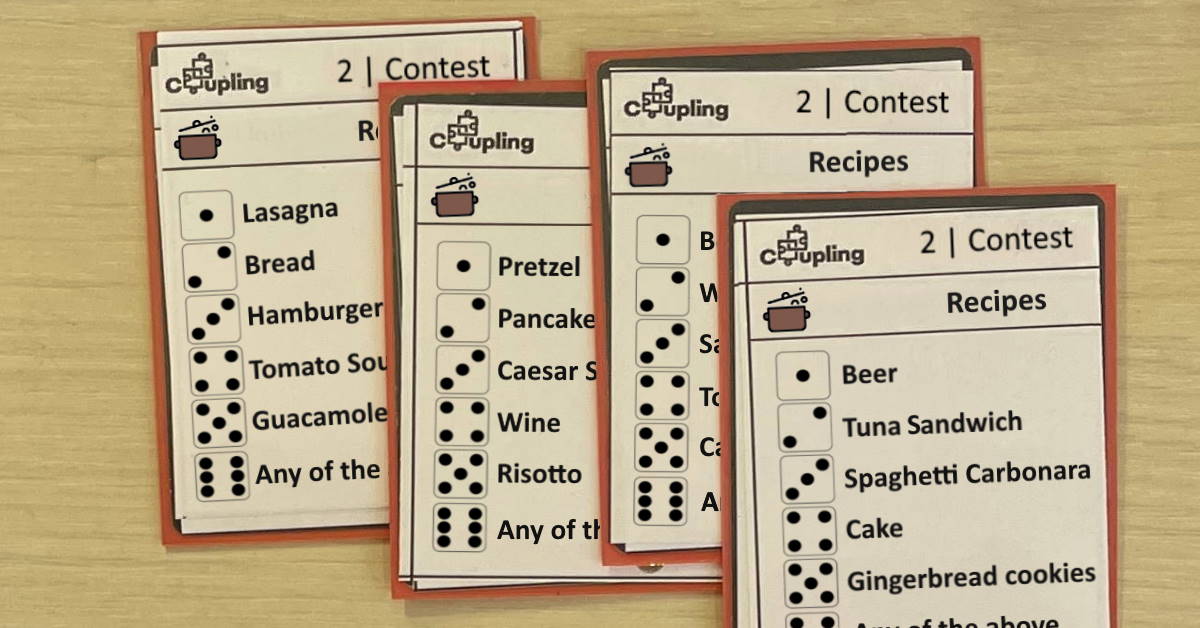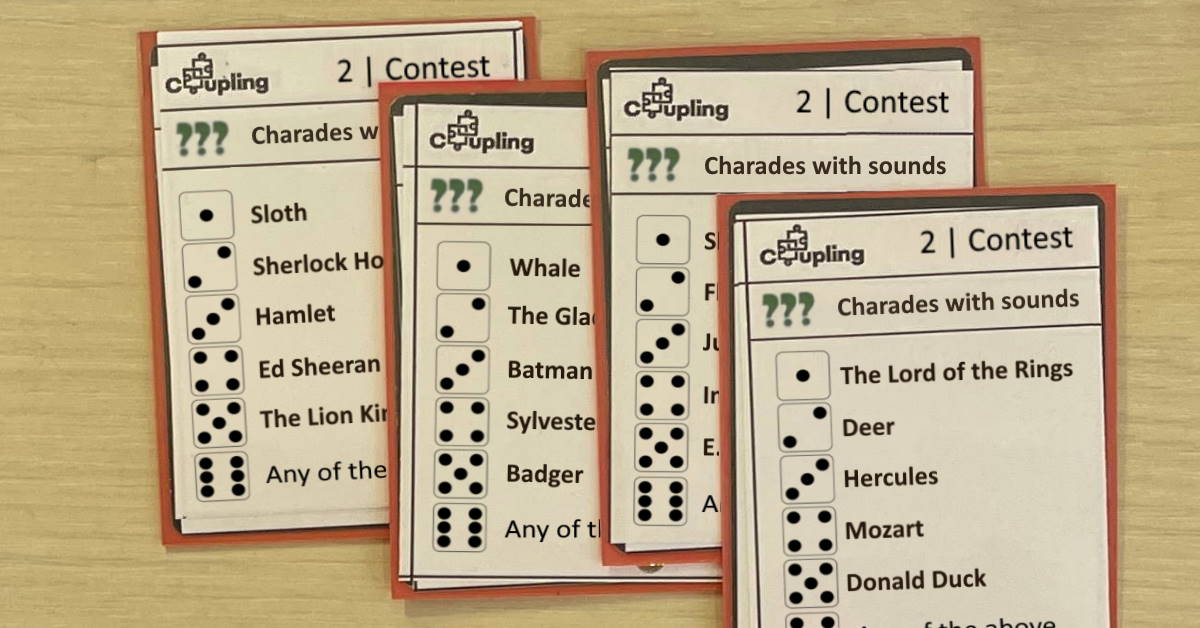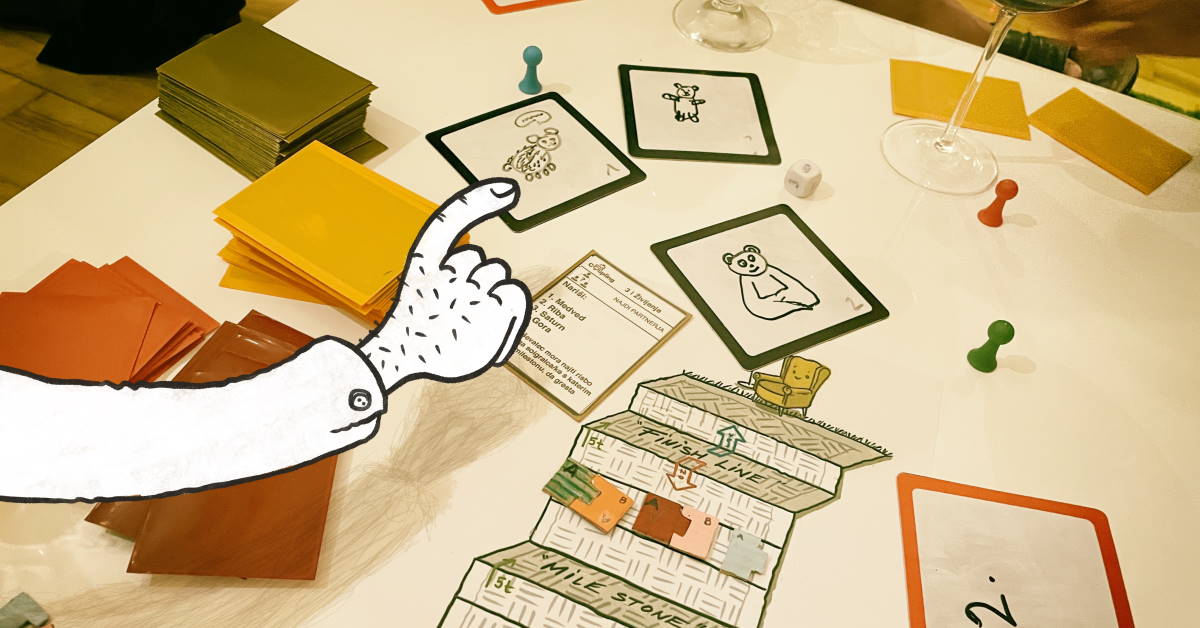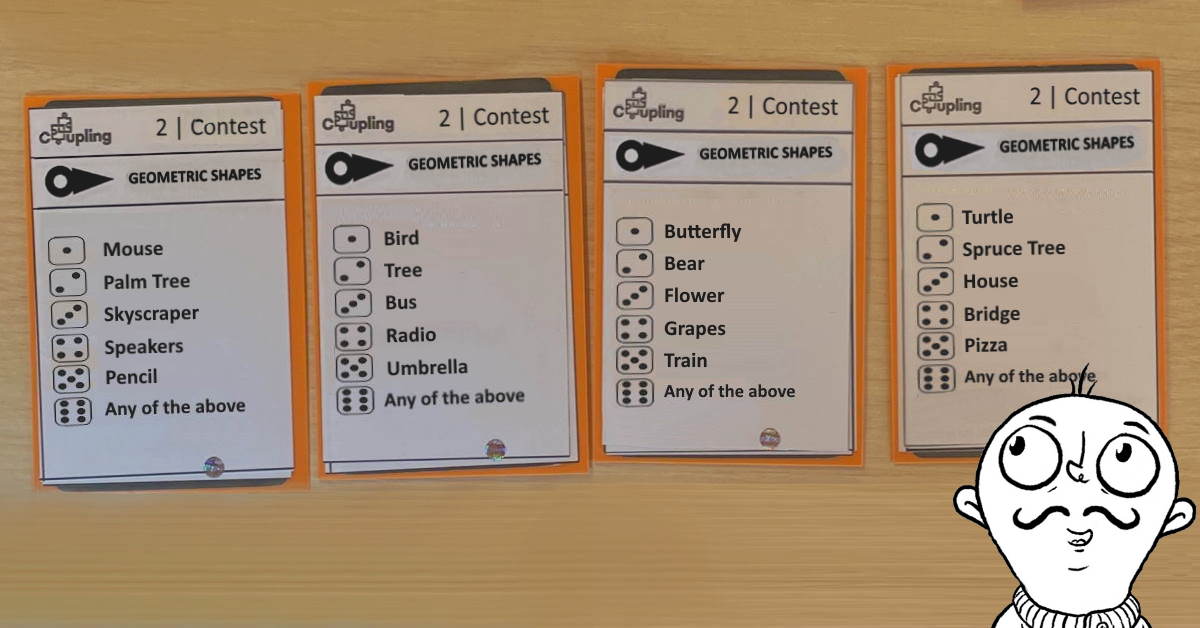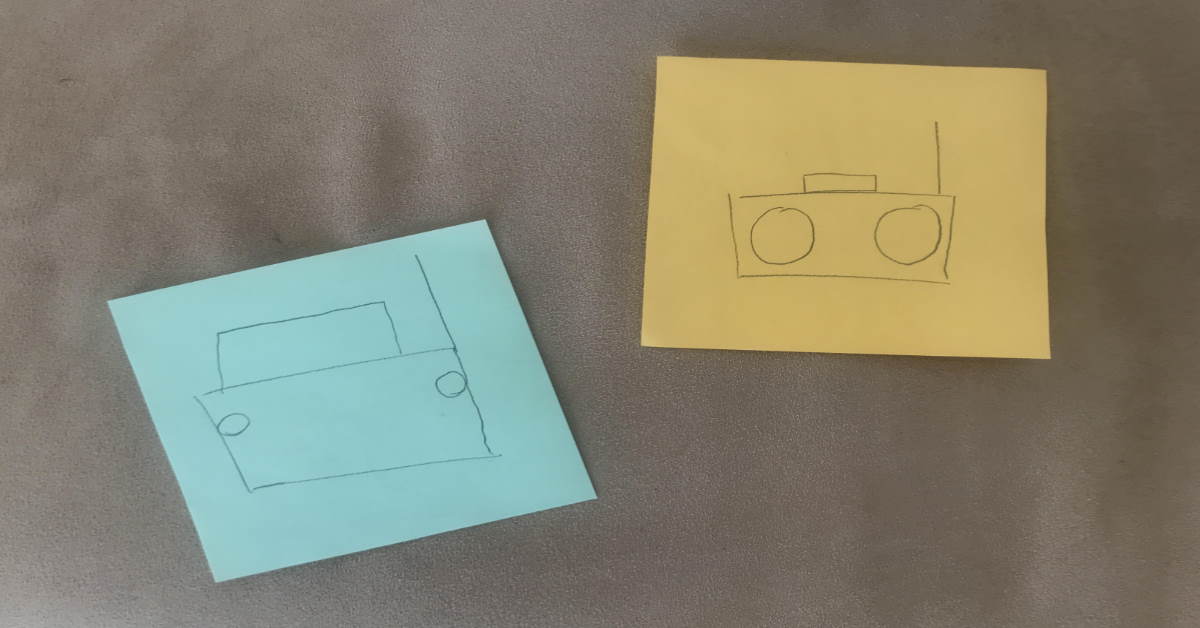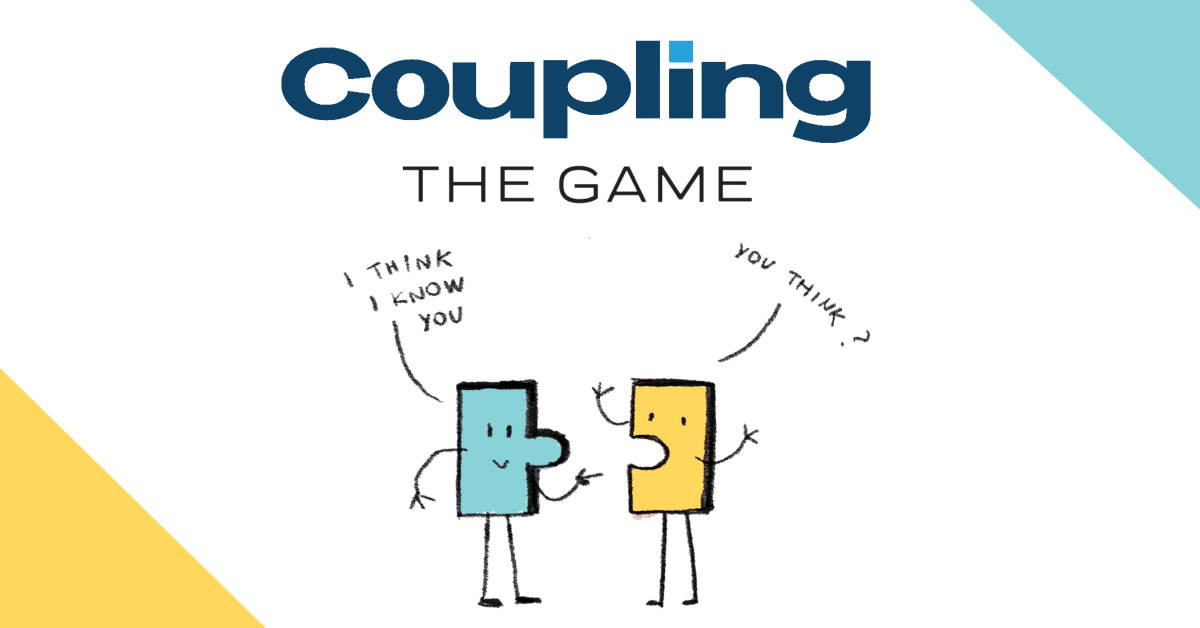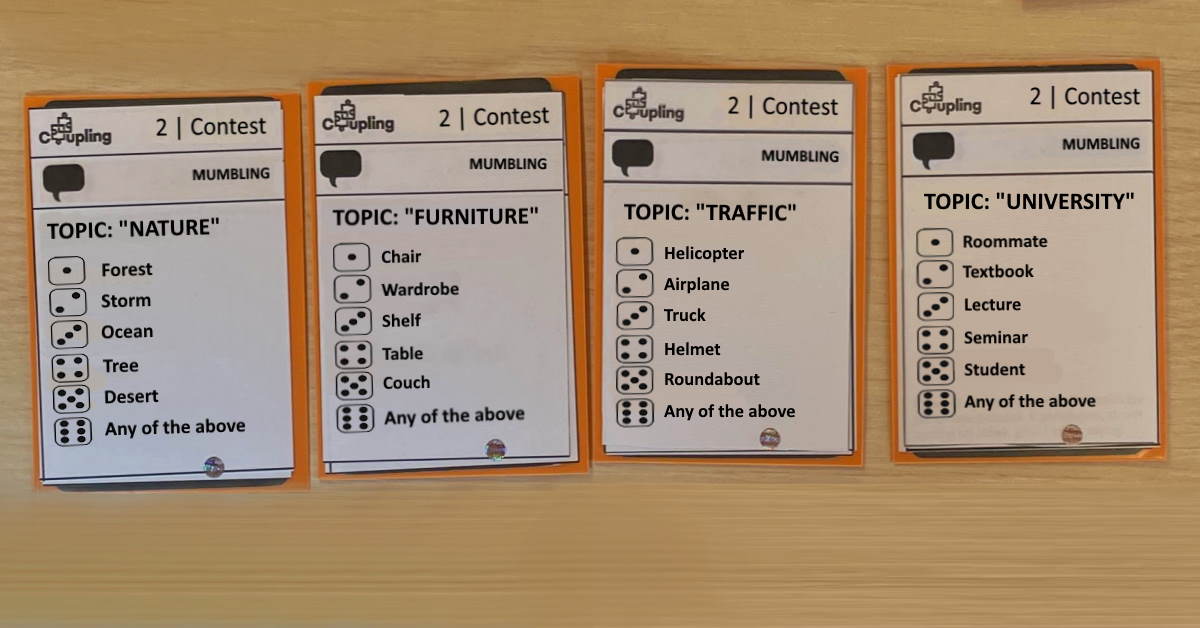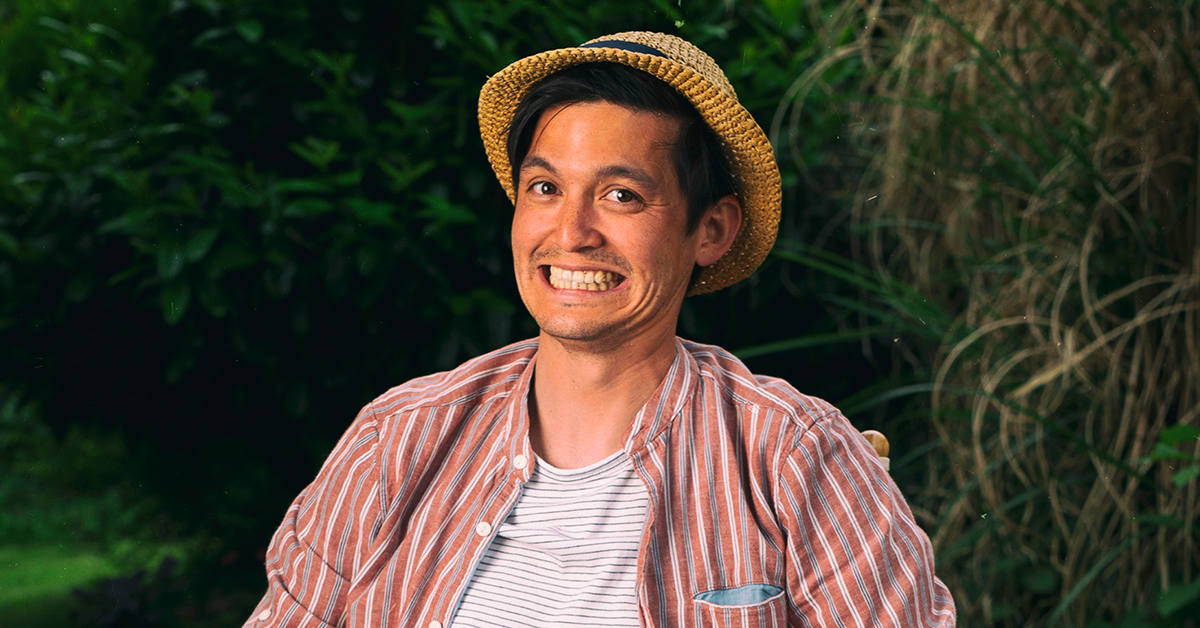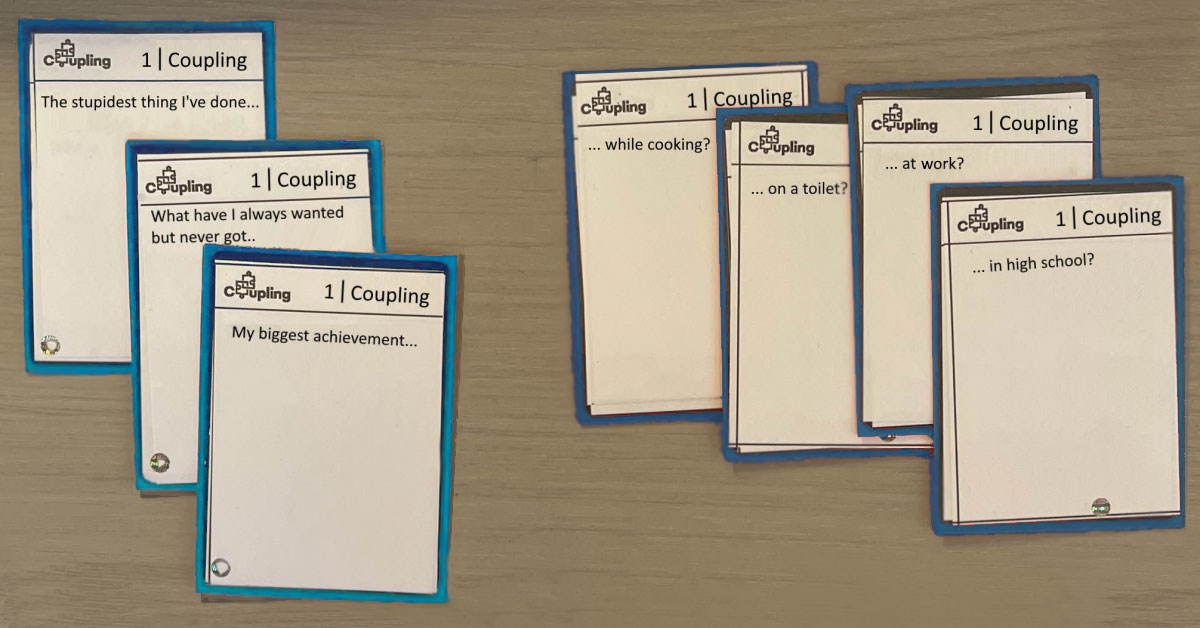Recipes: Stage two, Minigame Four
The fourth minigame is called Recipes, and it’s all about food! If you’re looking for a short run-down of the second stage of the game and its other three minigames, click here, here and here.
To start, you take the card and roll a D6 die to see which word(s) you’ll get. If you roll a 6, you can choose which word(s) you want (out of the ones available). Then, you must describe the food-word to your co-players by describing the recipe required to make it. But, you mustn’t use the root of the word to describe it!
It’s important to note that Recipes isn’t just another word-describing game. You’re challenged to try to accurately describe the process to make the food that you get. And it’s not much of an issue if you don’t know the recipe for the food, just make it up, or try to guess how it would be made! It makes for an incredibly fun challenge that can provide a ton of laughs exactly when someone gets a recipe they don’t know and they try their best to somehow describe their word.
The rest works exactly like the other stage two minigames. Whoever figures your word (or sentence) out the fastest (or at all), moves a step ahead with you! If no-one figures out the word, it’s the next player’s turn.

